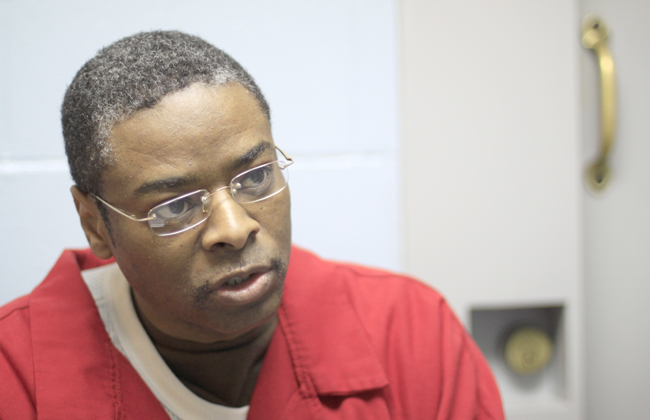The decision whether to grant convicted murderer Edward T. Kendrick III a new trial 17 years after he killed his wife now rests with Hamilton County Criminal Court Judge Don Poole.
After 10 days of a post-conviction hearing that took place over six weeks, Poole told people in the courtroom Wednesday that hearings in the case have "gone on much too long."
Kendrick has been trying for more than a decade to get a new trial in the 1994 death of his wife, Lisa Kendrick. He shot her to death in the parking lot of a BP station on Lee Highway and is serving a life sentence for first-degree murder.
Kendrick represented himself for much of the hearing, trying to prove he received inadequate legal advice in his trial and appeal.
In his closing argument Wednesday morning, he read through numerous cases he believed proved his right to a new trial.
But many of Kendrick's claims in the hearing drew sharp criticism from Assistant District Attorney Lance Pope, representing the state.
Kendrick alleged in his filings that prosecutors withheld, suppressed or limited key evidence and witnesses in his original trial and in his post-conviction appeals.
"I have listened for 10 days in this hearing for Mr. Kendrick to offer some evidence," Pope told the judge. "When you make those allegations, you better come armed to show that to the court."
Since 2004, Kendrick and his defense attorney, Jeffrey Schaarschmidt, have said the prosecution cannot produce audio tapes from police investigators and other evidence that they said would help Kendrick's case.
Schaarschmidt was with Kendrick in court, advising him on legal questions.
On March 6, 1994, Kendrick drove his car with his 2- and 3-year-old children to the gas station where Lisa Kendrick worked, court records show. Witnesses later testified they heard an explosion and saw Kendrick standing over his wife with a rifle.
Kendrick has maintained since his arrest that the gun fired accidentally and he never intended to kill his wife.
Kendrick argued more than 60 points in his hearing against his original lawyer, Hank Hill, and his appellate lawyer, Jerry Summers.
One crucial piece, Kendrick said, was evidence and testimony that Hill should have known about before the trial that would have helped Kendrick better decide whether to plead guilty to second-degree murder. He chose not to take the plea, he said, but if he had, he might have been released from prison on parole as early as 2000.
Pope addressed that complaint specifically in his closing argument.
"He wanted to talk his way out, through testimony, of the conviction," Pope said. "And that's something that Mr. Kendrick has to deal with and he's trying to deal with."

